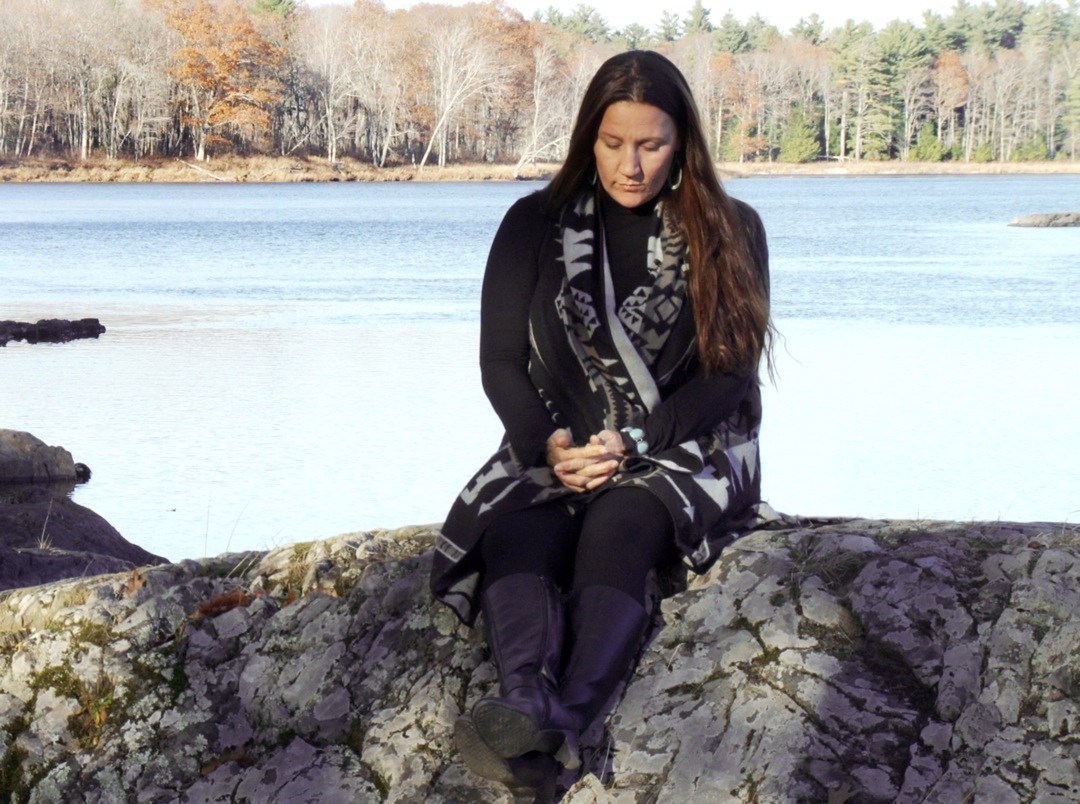By Hunter Bischoff and Felipe Fontecilla
Bar Harbor, Maine – Oct 14th 2019
Today in Maine, we celebrated the first ever official Indigenous Peoples Day. Changing Columbus day to indigenous day is part of the symbolic actions that the state of Maine has been taking to recognize indigenous people. In celebration of Indigenous Peoples Day, the Abbe Museum of Bar Harbor invited Sherri Mitchell, attorney, storyteller, and activist of the Penobscot Nation, to share with us her perspective on the issues of indigenous rights and climate change.
In her talk at the Abbe, Sherri commended the State of Maine on getting rid of racist Native American mascots in the schools and the changing of Columbus day to Indigenous Peoples Day. Through these actions, Maine is finally showing that is ready to accept indigenous people as human beings. These actions, however symbolic, are only the beginning of creating a State in which the human rights of everyone are respected. The Penobscot Nation’s sovereignty over the Penobscot River must be recognized. In 2012, Gov. LePage met with representatives from Exxonmobil in efforts to put a natural gas pipeline across the river, disrespecting historical treaties between the state and the tribes. Nestle Waters’s CEO David Emery called the idea that human beings have a right to water “extreme”. This is the same company that has been extracting and bottling the water of Maine for profit. Although there are many fronts to the fight for equity, Sherri Mitchell emphasized the need to protect the access to clean water as a priority. This is a fight that the Penobscot Nation has been waging with the State and exploitative industry for decades.
Sherri Mitchell spoke about colonialism, and proposed that the idea that we live in a post-colonial world is a myth. We have no control over our food, our water ways, our energy production, and the education of our children. We have also inherited, what she calls, the mental illness of dependency. So long as we continue to give up sovereignty over those basic resources we will remain colonized.
In the face of imminent climate disaster, Sherri Mitchell makes a call for a spiritual and mental transformation of our ways of being, where we put the value of all life becomes paramount. We need to stop worrying about the sustainability of the status quo, and start thinking about the sustainability of life. Our colonial mindset forces us to think of ourselves of either commodities or consumers, a false binary that blinds us from the potential of our relationships with the natural world as well as with each other. The transformation she proposes makes us challenge this mindset by rethinking these relationships. Sherri refers to these relationships as “the web of life” and gracefully connects it to quantum entanglement (a theory of quantum physics that seeks to demonstrate the invisible connection among two particles). We are all interconnected. We are all interdependent, even when we cannot see it.
“What was once connected physically, cannot be disconnected energetically or spiritually.” – Sherri Mitchell
Sherri calls us to recognize that we were all born at this moment in history for a reason, and we all have a role to play.
As climate activists, we should not just be thankful for a place at the table of decision making. If we truly want to limit the warming of our planet to 1.5°C, we need to wipe everything else off the table and present our decision makers with a pen and paper. We need to tell them to put their money where their mouth is when it comes to respecting Indigenous Rights and the realities of the climate crisis.
About Sherri Mitchell:
(Sourced from SacredInstruction.life)
Sherri Mitchell, who grew up in the Penobscot Indian Reservation (Penawahpskek), has traveled across the country and the world sharing her teaching on indigenous rights, environmental justice, and spiritual change. She is the author of “Sacred Instructions” (2018) and is currently working on her second book “Sacred Laws”. Sherri is also one of the founders of Healing the Wounds of Turtle Island, a global healing ceremony designed to heal our relationships with ourselves, one another, and the rest of creation. Over the past few years, students from College of the Atlantic have had the opportunity to interact with Sherri through workshops of the Thoreau Gathering, or through attending the healing ceremony that for the past two years has taken place in Nibezun, Penobscot territory, in Maine.
